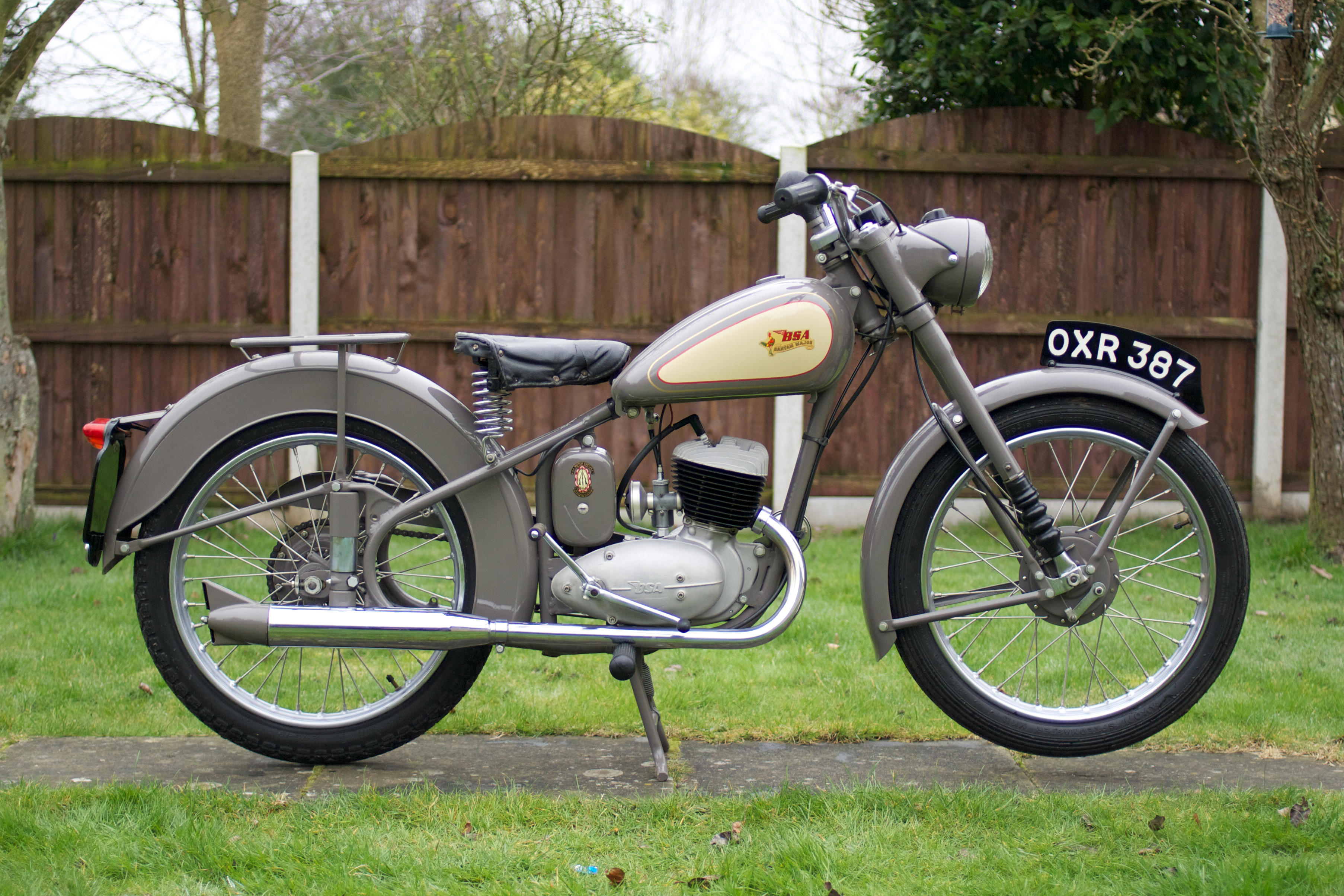Developed from the pre-war DKW RT125 and announced in 1948, the Bantam became a top-seller for BSA, in excess of half a million leaving the Birmingham factory before production ceased in 1971. Originally of 123cc, the engine grew first to 148cc - on the D3 Bantam Major, introduced for 1954 - and then to 172cc. Plunger rear suspension became an option in 1950, the next major changes to the cycle parts being the introduction of swinging-arm rear suspension and a sturdier telescopic front fork on the Bantam Major in 1956. This example of the plunger-suspended D3 Bantam Major is offered for restoration, its engine seized and the tin-ware extensively corroded. Sold strictly as viewed, the machine comes with old-style continuation logbook (issued 1961) indicating that the Bantam was owned by a serving member of the RAF at that time and recording a colour change from grey to black in November 1963. No reserve.
Developed from the pre-war DKW RT125 and announced in 1948, the Bantam became a top-seller for BSA, in excess of half a million leaving the Birmingham factory before production ceased in 1971. Originally of 123cc, the engine grew first to 148cc - on the D3 Bantam Major, introduced for 1954 - and then to 172cc. Plunger rear suspension became an option in 1950, the next major changes to the cycle parts being the introduction of swinging-arm rear suspension and a sturdier telescopic front fork on the Bantam Major in 1956. This example of the plunger-suspended D3 Bantam Major is offered for restoration, its engine seized and the tin-ware extensively corroded. Sold strictly as viewed, the machine comes with old-style continuation logbook (issued 1961) indicating that the Bantam was owned by a serving member of the RAF at that time and recording a colour change from grey to black in November 1963. No reserve.







Testen Sie LotSearch und seine Premium-Features 7 Tage - ohne Kosten!
Lassen Sie sich automatisch über neue Objekte in kommenden Auktionen benachrichtigen.
Suchauftrag anlegen